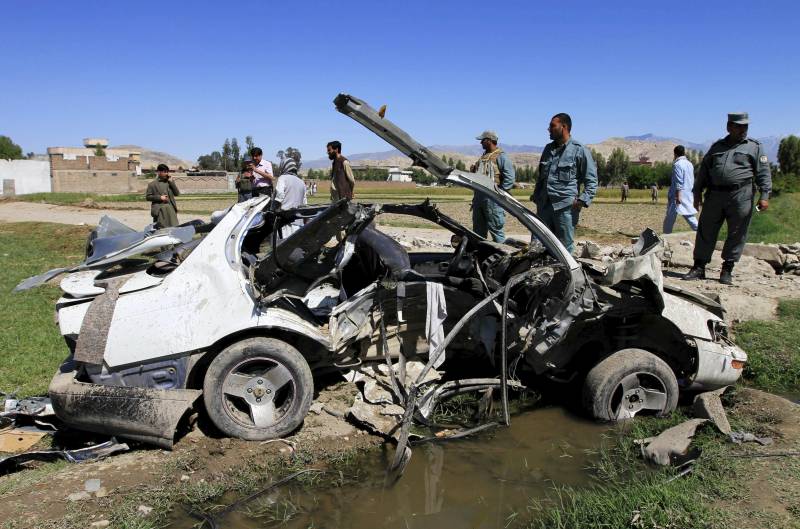Kabul: Afghan officials and NATO forces in Afghanistan said they doubted that a recent suicide attack on the eastern city of Jalalabad was the work of an offshoot Islamic State, the Islamist militant group fighting mainly in Syria and Iraq.
The bombing, in which at least 33 people were killed, was claimed by a spokesman pledging allegiance to IS, also known as ISIS and locally in Afghanistan as "Daesh". President Ashraf Ghani was quick to blame the group for the atrocity.
Any direct involvement by Islamic State would mean the ultra-violent movement had spread beyond the Middle East and north Africa, and increase the challenge faced by Afghan forces already struggling to counter Taliban insurgents.
"We have not yet seen evidence of ISIS direction or support of the attacks," Lt. Col. Christopher Belcher, spokesman for the international military coalition in Afghanistan, said in a statement.
"Jalalabad continues to be an area with significant Taliban influence, and this attack fits the pattern of past Taliban attacks in the region, underscoring that this attack does not represent a fundamental change in the security environment."
A spokesman for Afghanistan's Ministry of Defence also expressed doubt about links with Islamic State.
"I do not believe that it was carried out by Daesh," Brigadier General Dawlat Waziri said on Wednesday.
He added that the recently formed Islamic State of Khorasan, a old term to describe Afghanistan and Pakistan, was made up of small groups of Taliban fighters who had switched allegiance.
"We cannot ignore these forces, but they will not be as powerful as Daesh fighters in Syria and Iraq," Waziri said.
CLIMATE OF FEAR
The Taliban's official spokesman denied their forces were behind the Jalalabad bombing, although the movement ousted from power in the U.S.-led war in 2001 often disavows attacks that kill large numbers of civilians.
It has also fragmented, with rivals emerging to its elusive leader, who has not been seen in years.
The Islamic State of Khorasan's ex-Taliban leaders were recognised by the Middle East-based IS leadership in a video released in January, but the new group is believed to receive little, if any, weapons, money or logistical support.
Islamic State's success in swiftly seizing Iraqi territory has inspired some Afghan militants to adopt its flag, but experts said Afghanistan differed from Iraq in ways that would make similar gains there unlikely.
"The operational calculus is not really going to change at this point," said Michael Kugelman, Senior Program Associate for South and Southeast Asia, Asia Program at the Wilson Center in the United States.
For one, Afghanistan does not have such a deep and bitter sectarian divide between Sunni and Shi'ite Muslims, which IS has been able to exploit in Iraq, Kugelman said.
Islamic State's leadership is also too occupied in Iraq to try to shift resources to Afghanistan other than recognising its affiliates, although that could change, analysts said.
For now, one of Islamic State's main effects in Afghanistan has been to create a new level of fear in a country weary after a 13 year-war with the Taliban which shows no signs of abating.
Reports of possible IS attacks in the country, including on ethnic Hazaras who are Shi'ite, have appeared regularly in Afghan media in recent months, but few have been confirmed.
"Generally with Daesh, most of the stuff reported has turned out to be baseless and you also have a lot of government officials, I would say up to and including the president, who are keen to see the Daesh flag wave," said Kate Clark, country director for the Afghanistan Analysts Network.
"I would say that for the president, he recognises that without the Daesh threat, there would be a lot less international interest in Afghanistan," Clark said.






